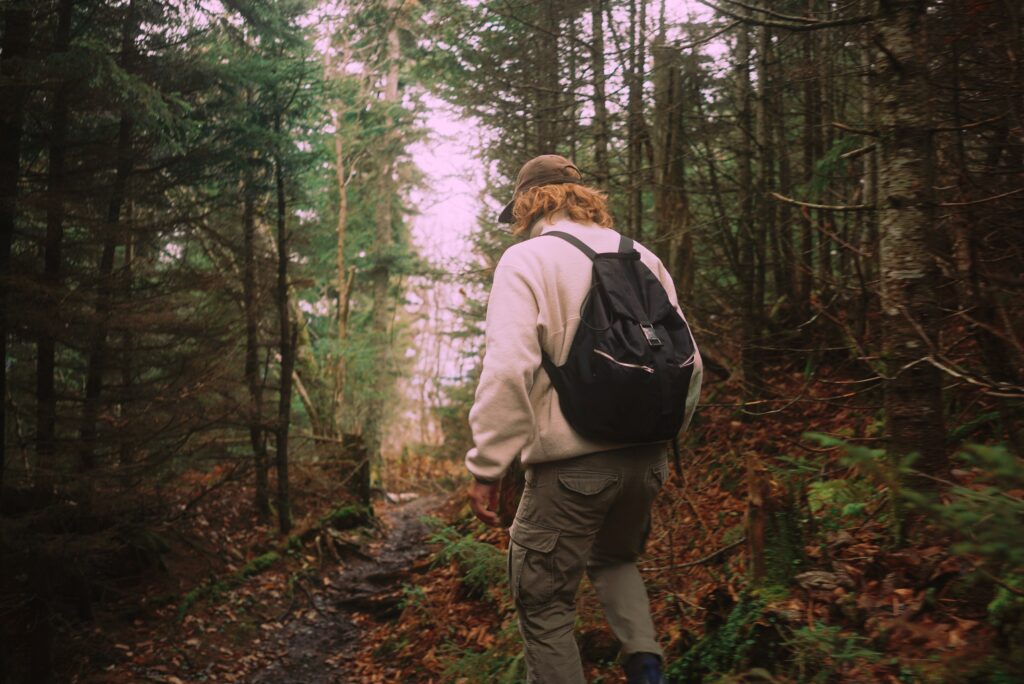Hiking is more than just walking around the woods; it’s an ancient practice rooted in human history. Since the dawn of time, humans have trekked around the wilderness as a means of travel and exploration. Today, hiking outdoors has blossomed into a worldwide recreational activity, with millions hitting the trails annually.
As a beginner, the thought of venturing into the wild may seem daunting, but with the right preparation and mindset, you’ll soon discover the joys and wonders that hiking offers. This hiking guide will walk you through the essential steps to embark on your first hiking adventure.
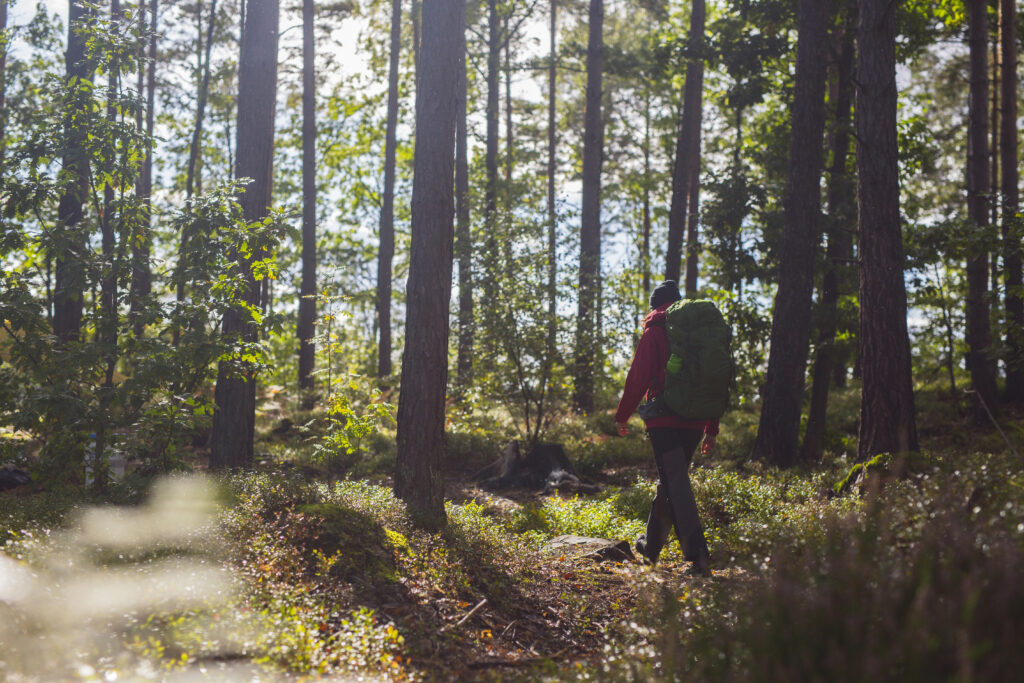
The History of Hiking
Hiking, or walking outdoors for pleasure, has been a pastime for centuries and is deeply routed in human history. Ancient pilgrims, nomads, and hunters traveled great distances on foot to explore the natural world and discover resources. Later, it became an essential part of Romanticism, celebrating the beauty and grandeur of nature.
Today, hiking has blossomed into a worldwide recreational activity, with millions hitting the trails annually. This activity is more than just a form of exercise; it’s a way to connect with the environment, de-stress, and find solitude.
The allure of hiking lies in the ability to “unplug” from the modern world and enjoy the simplicity of moving through outdoor landscapes at a human pace.
The Allure of Hiking: Why People Love It
Hiking outdoors goes beyond the physical act of walking. It offers a range of psychological and physical benefits that keep hiking enthusiasts coming back. The sense of adventure, the mental and physical challenge, and the opportunity to reconnect with nature are some of the key drivers.
Explore the Great Outdoors – Hiking offers an ever-changing landscape with something new around every bend. It’s about exploration and discovering hidden wonders, which can satisfy your hunger for new adventures.
Stress Relief and Mental Health – The solitude and serenity of the trails can increase happiness and lighten your mood. New hikers can expect to improve their overall mental well-being and reduce stress by getting some fresh air and spending time outdoors.
Connecting with Nature – Hikers often report feeling more balanced and grounded after a hike. The experience offers an invaluable connection to the natural world.
As a beginner hiker, you will experience the benefits of hiking firsthand. These experiences will solidify your love for this outdoor activity and inspire you to continue exploring what nature has to offer.
Getting Started: A Beginner’s Guide to Hiking
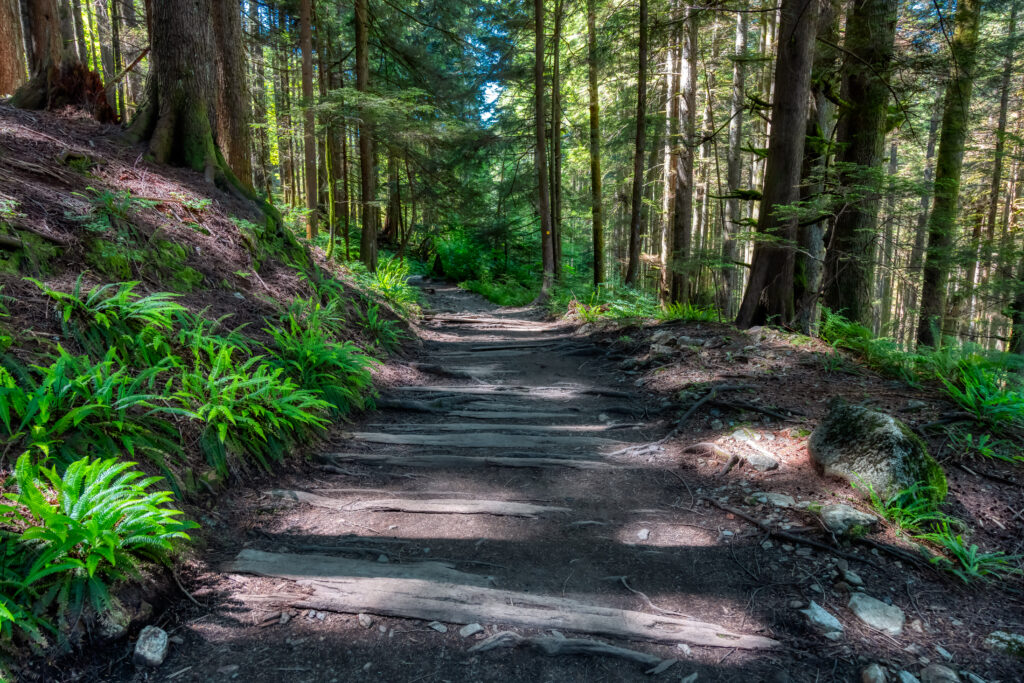
Choosing the Right Trail.
Selecting beginner hiking trails is crucial to a positive experience. Consider the following factors:
Trail Length – Start hiking at shorter distances, typically between 1 to 3 miles, and then advance from there once you understand your comfort level.
Elevation – Look for beginner trails with gradual climbs and descents to ease into changes in terrain.
Terrain Type – Opt for well-marked trails that are known to be easy for beginner hikers, such as those with maintained paths and no rock scrambling. Consider trail conditions that are not rocky or muddy.
Essential Gear for Beginners.
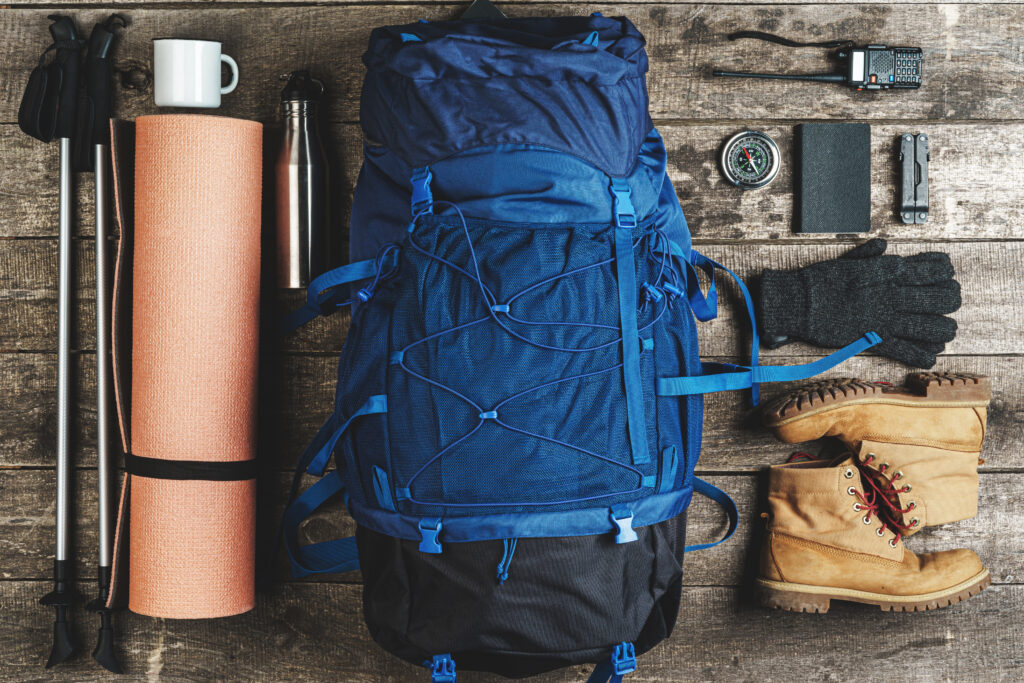
As a beginner hiker, it is important to pack essential gear to ensure safety and comfort. Here’s a list of must-have items:
Daypack – A day hiking backpack is the backbone of your gear, essential to accommodate all of your hiking gear, and will help make your hiking trip more enjoyable and hassle-free.
Appropriate Footwear – Invest in a solid pair of hiking boots or shoes designed for the type of terrain you’ll encounter. Be sure that your hiking boots are comfortable to wear over long periods of time, contain ankle support for uneven terrain, and are waterproof/water resistant for wet conditions.
Weather-Appropriate Clothing – Dress in layers and avoid cotton. Choose hiking clothing with moisture-wicking materials such as wool, and pack a waterproof jacket.
Navigation Aids – Bring a map and compass, and consider a GPS if you’re new to navigating trails or hiking in unfamiliar territory.
Hydration – Carry plenty of water or a water purification system.
Nutrition – Pack energy-boosting snacks and consider a packed lunch for longer hikes.
First Aid Kit – This is mandatory! Always pack a basic first aid kit to treat minor injuries or ailments.
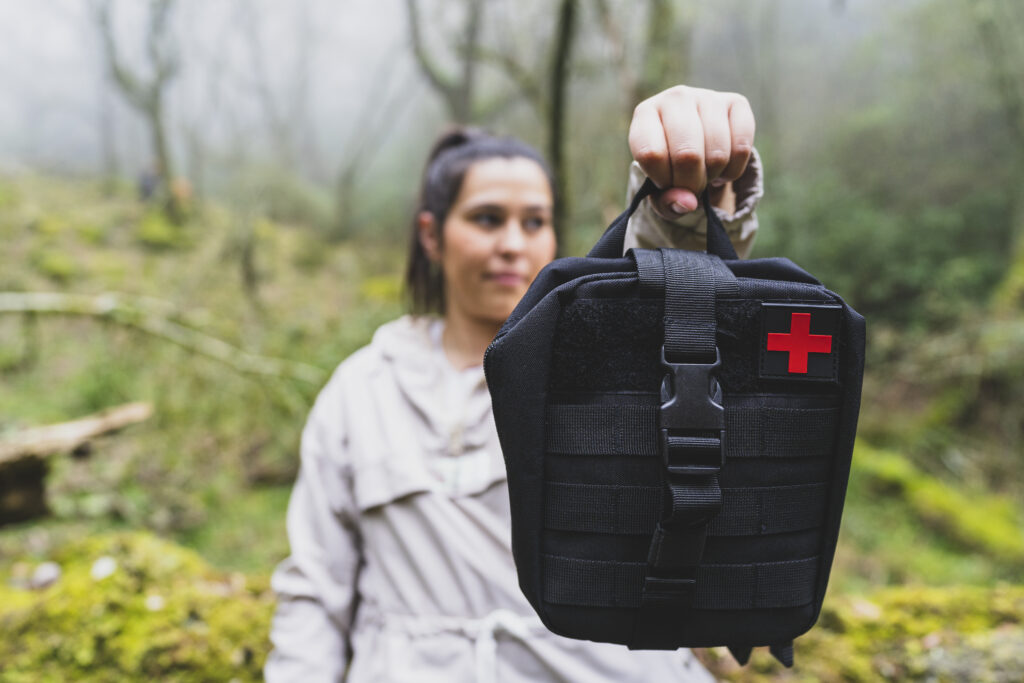
Trail Etiquette and Safety Tips.
Understanding and practicing hiking etiquette will help you stay safe while out on the trails and ensure that other hikers are able to enjoy the beauty of nature for generations to come. As you prep for your next hike, keep these hiking safety tips in mind:
Leave No Trace – Be sure to pack out all your trash, observe wild animals from a distance, and stay on marked trails to minimize your impact on the environment. The key idea is simple: enjoy the wilderness responsibly, leaving it as you found it so fellow hikers can also experience its beauty.
Share the Trail – Always yield to other hikers headed uphill and share the trail with others, including equestrians and bikers.
Safety First – Hike with a companion or let someone know your intended route and turnaround time. Be aware of wildlife in the area and make noise to alert animals of your presence.
Preparing for Your First Hike
Physical Preparation.
Being physically prepared in some shape or form is mandatory for hiking. This is a physical activity, and certain trails require more physical exertion than others.
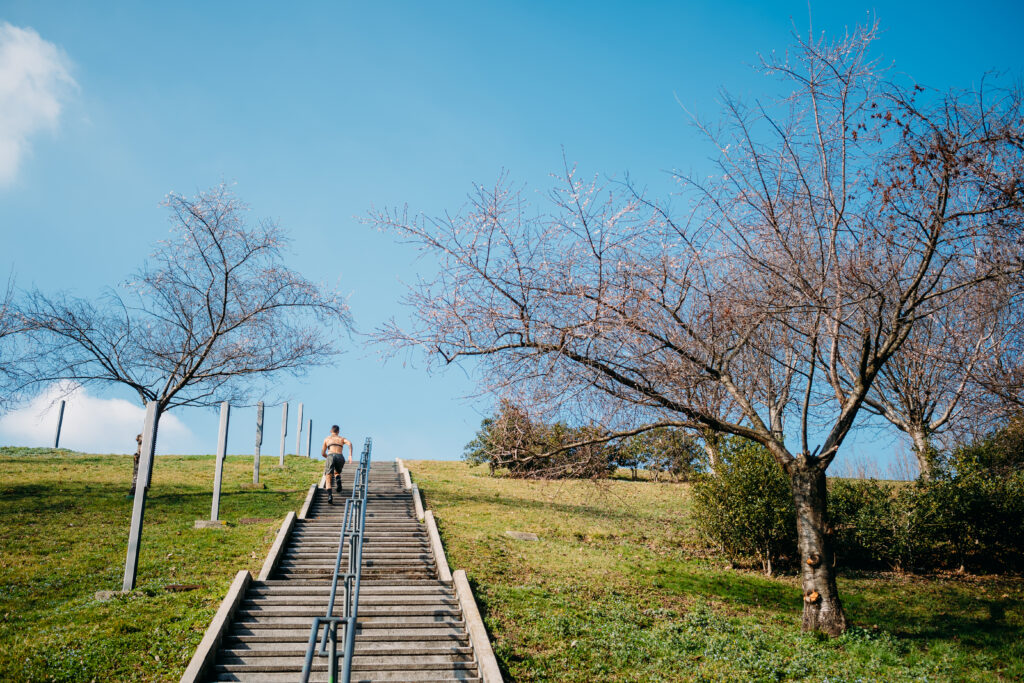
With regular exercise, start to build your stamina and strength by engaging in activities that simulate hiking, such as walking uphill on a treadmill or climbing stair steppers. Incorporating these exercises into your routine can help prepare you for your first hiking experience:
Cardio – Aim for at least 30 minutes of cardio at least three times a week to build endurance.
Strength Training – Focus on your legs, core, and back to provide the support you need for longer hiking journeys.
Flexibility – Stretch daily to improve mobility and prevent injury on the trail.
Mental Preparation.
Approach your first day hike with a positive and open mindset. Recognize that there may be challenges, both physical and mental, but also embrace the journey and the lessons it can teach you. Consider the following strategies to boost your confidence:
Educate Yourself – Research the trail you’ll be hiking, understand its features, and visualize the experience.
Set Goals – Define what success looks like for your hike, whether it’s reaching a certain landmark or just enjoying your time in nature.
Overcome fears – Identify any fears you may have before the hike and work through them with knowledge and preparedness.
The Health Benefits of Hiking For Beginners
The physical benefits of hiking can be extensive. It’s a full-body workout that can lead to improved cardiovascular health, increased muscle strength and endurance, and better balance. Beyond that, the mental health advantages of feeling more connected with nature and less stressed are equally significant.
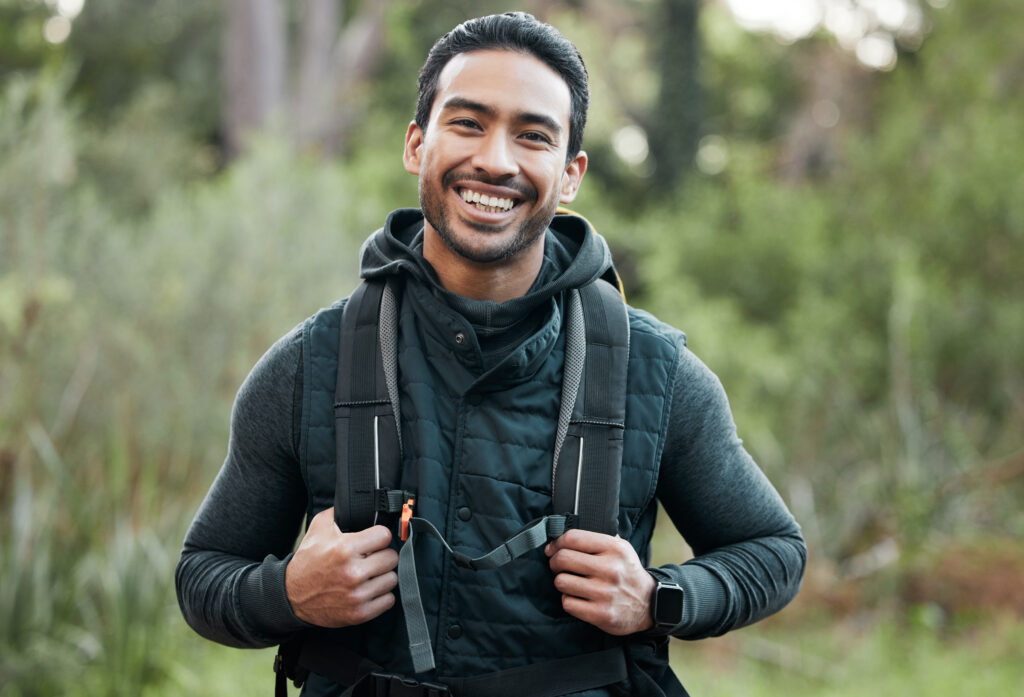
A study from Harvard found that hiking can improve your mind and mood. Being out in nature exposes you to new sights and experiences, which rewards your brain and helps you achieve a sense of accomplishment.
People who exercised in natural environments had greater feelings of revitalization, increased energy, and positive engagement. Furthermore, they expressed a decrease in tension, confusion, anger, and depression. This explains why so many people feel alive and invigorated after a day hike!
Tips for a Thrilling Hiking Adventure
To fully embrace the experience of hiking, consider the following tips to enhance your first hiking journey.
Capturing the Experience: Photography Tips.
Hiking can be a beautiful experience. While it is important to live in the moment and enjoy life, it is equally valuable to capture these moments as memories and accomplishments for the future. Here are some quick tips to help you capture the moment on your first hiking adventure:
Know Your Gear – Whether it’s a smartphone or a DLSR, understand the basics of your camera before you set out.
Lighting is Key – The golden hour (shortly after sunrise and before sunset) provides the best lighting for quality images.
Look for Landmarks – Frame your shots with recognizable features of the hiking trail to tell a story.
Enjoying the Journey: Mindfulness Techniques.
Practicing mindfulness during your hike can greatly enrich your experience. It’s about being fully present in the moment, paying attention to your senses, and appreciating the beauty around you. Here are a few simple exercises to get you started:
Breathe Deeply – Focus on taking deep, calming breaths as you walk.
Listen to Nature – Pay attention to the birds, the wind in the trees, and the silence in between.
Take Breaks – Stop at scenic overlooks or by a babbling brook and absorb your surroundings.
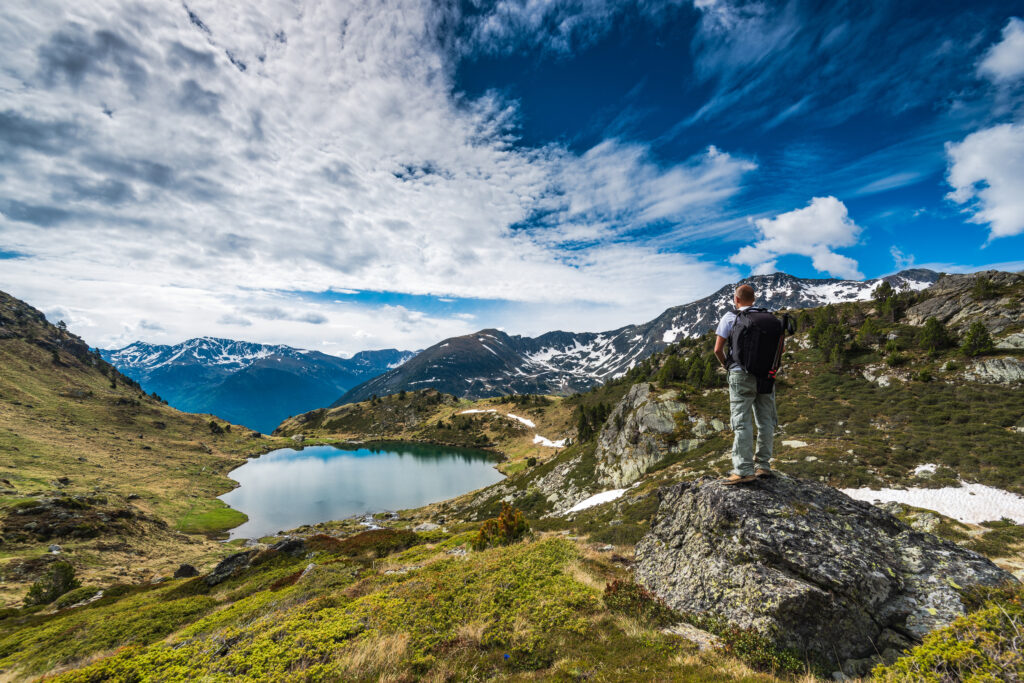
Final Thoughts: Embracing the Trail – Hiking For Beginners
As you take the first step toward your hiking journey, keep in mind that preparation is key. Take the time to prepare both physically and mentally, select the right hiking trail, and pack the necessary gear. The health benefits of hiking, the thrill of adventure, and the connection with nature await you.
The path ahead may seem uncertain and unfamiliar, but even experienced hikers started where you are now. Your first day hike is only the beginning – get ready to explore countless trails that lead to discovery, health, and happiness.

